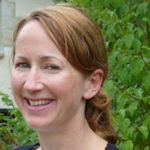
The air that we breathe: An around the world tour of atmospheric chemistry Professor Lucy Carpenter, Wolfson Atmospheric Chemistry Laboratories
Event details
Merchant Adventurers’ Science Discovery Lecture
Air pollution is a long-standing environmental problem, the origins of which can be traced back to Roman and Greek times. Modern day air pollution is caused by emissions from many different sources including power generation, road transport, combustion, domestic heating, solvents, paints, agriculture and industrial processes.
The health costs of air pollution are very high and it is predicted that by 2030 air pollution will be the largest cause of preventable deaths globally [WHO, 2014]. In the UK more than 20,000 deaths each year are attributable to air pollution and the cost to the economy is in excess of ten billion pounds per year. Air pollution also affects biological systems, can damage plants and reduces the yields of crops such as wheat and rice.
Today atmospheric chemists now have a myriad of tools to probe the atmosphere, from satellite instruments for global monitoring, airborne drones to capture chemistry from the surface to the stratosphere, miniaturised sensors for networked observations, and highly complex computer models capable of simulating thousands of chemical species and reactions. This level of information is required to address the major challenges of atmospheric chemistry today. In this talk, Professor Lucy Carpenter will describe how she and her colleagues search for changes in atmospheric composition which affect human health and climate, including recent discoveries in the science of air pollution.
About the speaker

Professor Lucy Carpenter
Lucy Carpenter is a Professor of Chemistry at the University of York where she is Deputy Head (Research) of the Chemistry Department. Her group's research encompasses long-term monitoring of atmospheric composition changes and the atmospheric chemistry and impact of processes in the marine atmosphere. She is the UK principal investigator of the Cape Verde Observatory (CVO) – a World Meteorological Organisation-Global Atmospheric Watch (WMO-GAW) global station, and was a lead chapter author of the WMO/UNEP 2014 and 2018 Scientific Assessments of Ozone Depletion, which inform the Montreal Protocol. Lucy is co-founder of the University of York atmospheric chemistry group (Wolfson Atmospheric Chemistry Laboratory, WACL), now the largest in the UK. Her research has been recognised by several awards and in 2019 she was elected a Fellow of the Royal Society (FRS).
Contact
Events Office